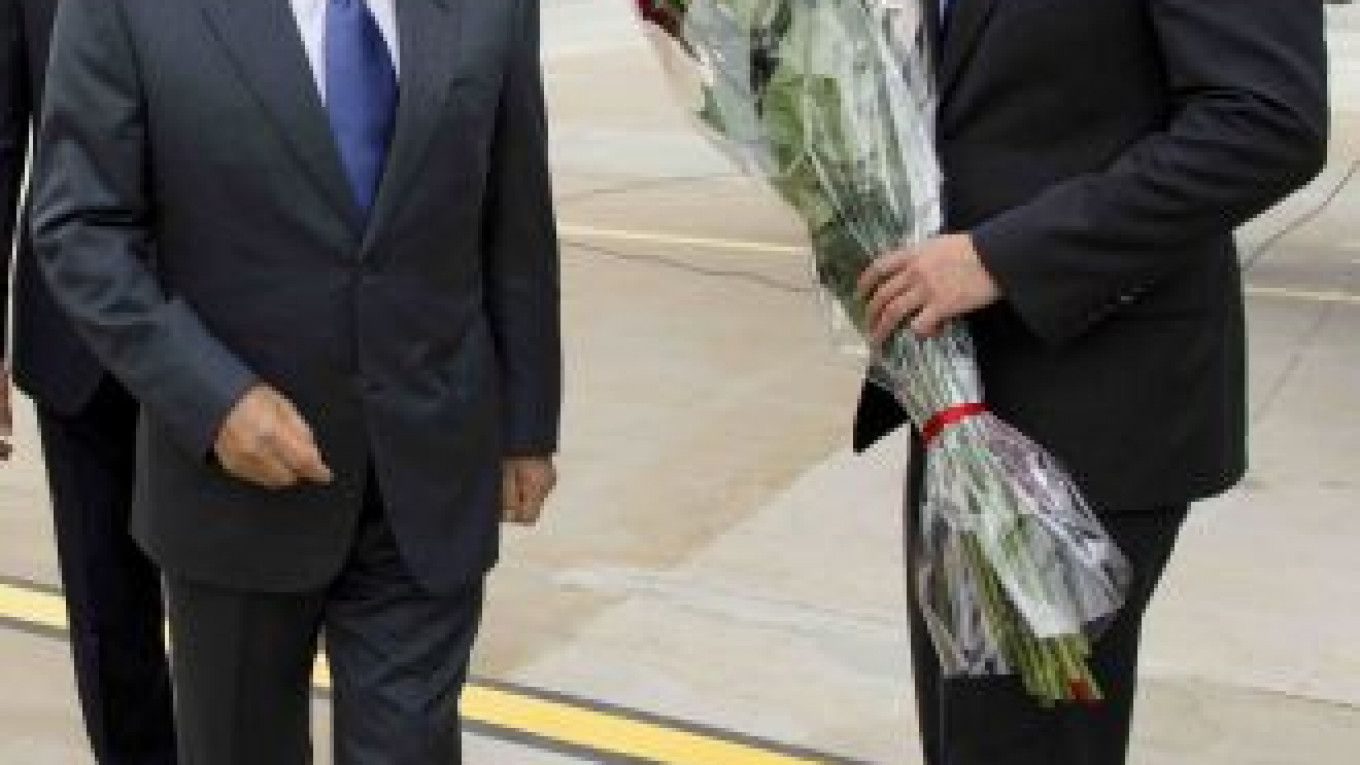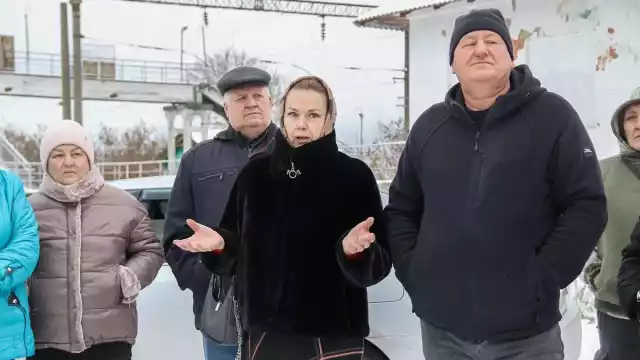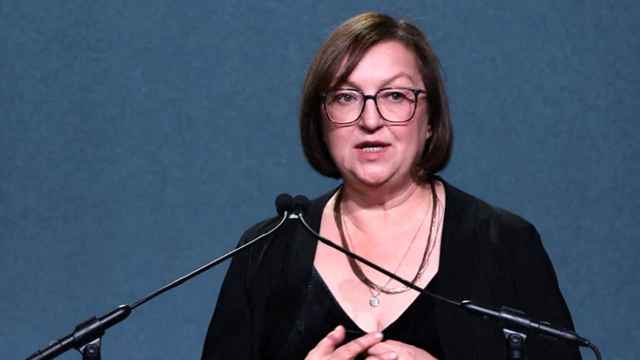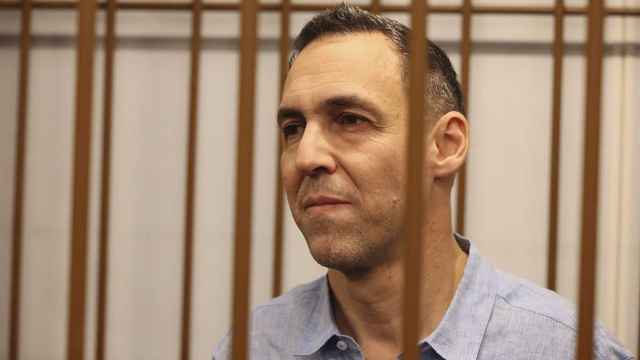ASTANA — Kazakh President Nursultan Nazarbayev said Monday that nobody had the right to lecture his country, after British Prime Minister David Cameron raised concerns about human rights in the former Soviet state.
In Kazakhstan on a brief visit that saw 700 million pounds ($1.06 billion) of business deals, Cameron, sitting shoulder-to-shoulder with Nazarbayev, said he had discussed "at length" allegations about government repression.
Nazarbayev was stone-faced, underscoring the political risks of Cameron's strategy of broadening Britain's trade links to include emerging economies such as Kazakhstan, which sits on a wealth of oil reserves.
Cameron says Britain needs to diversify such links at a time when its economy is in the doldrums. But activists have accused him of putting trade before human rights, while the countries he is trying to court bridle at criticism of their rights records.
"I discussed for instance the letter written by Human Rights Watch, and the concerns in that letter," Cameron told a news conference in the Kazakh leader's presidential palace.
"It's very important we have a frank dialogue."
In the letter, which was sent on Friday, New York-based Human Rights Watch said it was worried about credible allegations of torture, the imprisonment of government critics, and tight controls over the media and freedom of expression. It urged Cameron to raise the subject with the Kazakh president.
Nazarbayev, a former Communist party apparatchik who has ruled Kazakhstan for more than 20 years, responded coldly.
"Thank you very much for the recommendations, for the advice, but nobody has a right to instruct us how to live," said Nazarbayev, who turns 73 this week and enjoys the official title of "The Leader of the Nation."
While activists say the rest of Central Asia has much harsher autocratic leaders than Nazarbayev, they say his refusal to tolerate opposition or dissent shows few signs of easing.
In particular, they say they are concerned about the case of Vladimir Kozlov, a jailed opposition leader.
An outspoken critic of Nazarbayev, Kozlov was jailed for 7 1/2 years in October for colluding with a fugitive billionaire in a failed attempt to rally oil workers to bring down the government. Kozlov denied the charges.
Nazarbayev, who was a member of Soviet President Mikhail Gorbachev's last Politburo of the Communist party, said Westerners often viewed his country through a distorted prism.
"People from your island see the post-Soviet space as being in the middle ages, where residents ride camels and horses."
Kazakhstan needed time to develop democracy, he added.
"British parliamentary democracy is 600 years old. It won't take us that long, of course. Democracy for us is not the beginning of the journey but the end of the journey. We're moving forward."
A Message from The Moscow Times:
Dear readers,
We are facing unprecedented challenges. Russia's Prosecutor General's Office has designated The Moscow Times as an "undesirable" organization, criminalizing our work and putting our staff at risk of prosecution. This follows our earlier unjust labeling as a "foreign agent."
These actions are direct attempts to silence independent journalism in Russia. The authorities claim our work "discredits the decisions of the Russian leadership." We see things differently: we strive to provide accurate, unbiased reporting on Russia.
We, the journalists of The Moscow Times, refuse to be silenced. But to continue our work, we need your help.
Your support, no matter how small, makes a world of difference. If you can, please support us monthly starting from just $2. It's quick to set up, and every contribution makes a significant impact.
By supporting The Moscow Times, you're defending open, independent journalism in the face of repression. Thank you for standing with us.
Remind me later.






